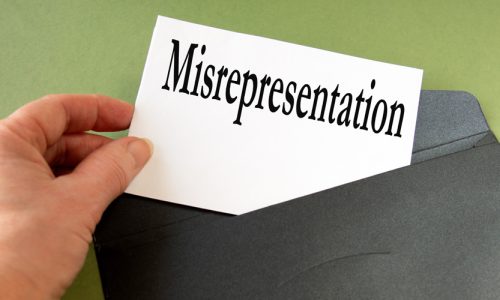When Criminal Records Affect Family Sponsorship in Canada: What to Know About Appeals and Judicial Review

Navigating Canadian immigration rules can feel overwhelming, especially when criminal records come into play. Family sponsorship is meant to keep loved ones together, but inadmissibility findings can stand in the way. A refusal does not always mean the end of the process. Understanding how criminal records impact sponsorship eligibility—and knowing when an appeal may be possible—can help families make informed decisions about their next steps.
1. Understanding Criminal Inadmissibility in Canadian Immigration
Under Canada’s immigration laws, criminal inadmissibility can affect both sponsors and sponsored family members. The rules differ depending on who has the conviction:
- Sponsors: A Canadian citizen or permanent resident may be barred from acting as a sponsor if they have been convicted of certain offences. This includes violent crimes, sexual offences, or offences against a family member, unless they have received a record suspension (formerly known as a pardon).
- Sponsored persons: A foreign national being sponsored may be found inadmissible to Canada if they were convicted of a criminal offence either in Canada or abroad. Foreign convictions are assessed based on whether the conduct would be considered a crime under Canadian law (a process called equivalency).
Inadmissibility most often arises with offences involving violence, theft or fraud, and drug-related activity. However, even offences that seem minor in another country may still be treated seriously in Canada if they meet the Canadian definition of a criminal offence.
It is important to note that a finding of inadmissibility does not automatically end the sponsorship process. In some cases, options such as criminal rehabilitation, a temporary resident permit (TRP), or an appeal may be available.
2. Sponsorship Eligibility: Who Can and Cannot Apply
Eligibility depends not only on the sponsor meeting financial and residency requirements, but also on whether either party has criminal inadmissibility issues. For example:
- A sponsor with certain criminal convictions cannot file a sponsorship.
- A sponsored applicant who is found inadmissible may be refused unless a remedy such as criminal rehabilitation or a temporary resident permit (TRP) is granted.
These rules ensure that public safety concerns are balanced with the Canadian government’s commitment to family reunification.
3. Legal Remedies for Criminal Inadmissibility
Facing inadmissibility does not always end the sponsorship process. A Canadian family sponsorship appeal lawyer can assess the refusal letter, determine the legal grounds, and advise on the most appropriate remedies. Depending on the circumstances, these may include:
- Criminal Rehabilitation: If the conviction occurred outside Canada and enough time has passed, the sponsored person may be eligible to apply for criminal rehabilitation. If granted, this permanently removes the inadmissibility related to that offence.
- Temporary Resident Permit (TRP): A TRP may allow a person who is otherwise inadmissible to enter or remain in Canada for a set period, if their presence is justified in the circumstances. This can provide a temporary solution while pursuing a long-term remedy such as rehabilitation.
- Humanitarian and Compassionate (H&C) Considerations: In some cases, hardship factors—such as the best interests of a child or the impact of family separation—can be raised before the Immigration Appeal Division (IAD). While not guaranteed, H&C arguments may influence the outcome of an appeal where the law allows.
- Appeals and Judicial Review: If a sponsorship is refused due to criminal inadmissibility, the next step may be to challenge the decision. In some cases, the sponsor may have the right to appeal to the Immigration Appeal Division (IAD), where both legal and humanitarian arguments can be raised. If no right of appeal exists—such as in cases of serious criminality—the only recourse is an application for judicial review at the Federal Court of Canada to assess whether an error was made in the decision.
Every case is fact-specific. A lawyer’s role is to gather supporting documents, prepare detailed submissions, and present the strongest possible case before the IAD or, where required, the Federal Court of Canada.
4. Appeals vs. Judicial Review: Knowing the Difference
If a family sponsorship application is refused, the next step depends on the legal basis for the refusal.
- Appeal to the Immigration Appeal Division (IAD):
Sponsors generally have the right to appeal to the IAD if the refusal is based on criminal inadmissibility, provided the inadmissibility is not for “serious criminality.” Under Canadian law, serious criminality usually means:
- A conviction inside Canada with a sentence of six months or more in jail, or
- An offence outside Canada that would carry a maximum penalty of 10 years or more if committed in Canada.
In cases that do not involve serious criminality, the sponsor may file an appeal. At the IAD, arguments can include legal errors, humanitarian and compassionate considerations, and the best interests of children affected by the refusal.
- Judicial Review at the Federal Court of Canada:
If the refusal involves serious criminality or if the law excludes appeal rights for another reason, the only other recourse to set the decision aside is an application for judicial review. This is not a new hearing of the case. Instead, the Federal Court reviews whether the immigration officer or tribunal made a legal or procedural error.
Understanding whether a refusal is appealable at the IAD or only reviewable by the Federal Court is critical. Each pathway has its own timelines, procedures, and strategic considerations, making legal advice highly valuable.
5. Why Legal Guidance Matters
Family sponsorship refusals based on criminal inadmissibility are legally and emotionally complex. Each case requires careful analysis, strategic planning, and strong evidence. A Canadian immigration lawyer can:
- Review the refusal letter and identify possible remedies.
- Prepare submissions for criminal rehabilitation or TRP applications.
- Represent sponsors at the IAD or prepare arguments for judicial review at the Federal Court.
With professional guidance, families can better understand their options and take informed steps toward overcoming inadmissibility barriers.
Contact The Law Office of Tià Sherene McCalla today to discuss your situation and learn more about your options for overcoming obstacles in family sponsorship appeal cases.






